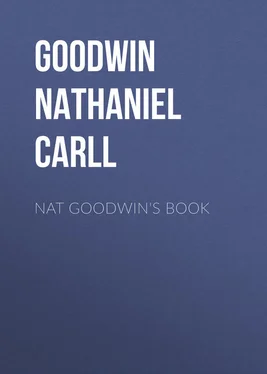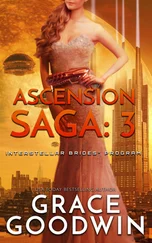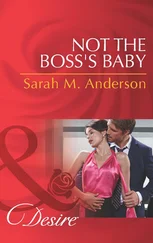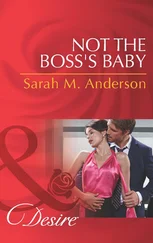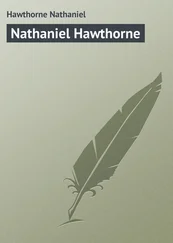Nathaniel Goodwin - Nat Goodwin's Book
Здесь есть возможность читать онлайн «Nathaniel Goodwin - Nat Goodwin's Book» — ознакомительный отрывок электронной книги совершенно бесплатно, а после прочтения отрывка купить полную версию. В некоторых случаях можно слушать аудио, скачать через торрент в формате fb2 и присутствует краткое содержание. Издательство: Иностранный паблик, Жанр: foreign_antique, foreign_prose, на английском языке. Описание произведения, (предисловие) а так же отзывы посетителей доступны на портале библиотеки ЛибКат.
- Название:Nat Goodwin's Book
- Автор:
- Издательство:Иностранный паблик
- Жанр:
- Год:неизвестен
- ISBN:нет данных
- Рейтинг книги:5 / 5. Голосов: 1
-
Избранное:Добавить в избранное
- Отзывы:
-
Ваша оценка:
- 100
- 1
- 2
- 3
- 4
- 5
Nat Goodwin's Book: краткое содержание, описание и аннотация
Предлагаем к чтению аннотацию, описание, краткое содержание или предисловие (зависит от того, что написал сам автор книги «Nat Goodwin's Book»). Если вы не нашли необходимую информацию о книге — напишите в комментариях, мы постараемся отыскать её.
Nat Goodwin's Book — читать онлайн ознакомительный отрывок
Ниже представлен текст книги, разбитый по страницам. Система сохранения места последней прочитанной страницы, позволяет с удобством читать онлайн бесплатно книгу «Nat Goodwin's Book», без необходимости каждый раз заново искать на чём Вы остановились. Поставьте закладку, и сможете в любой момент перейти на страницу, на которой закончили чтение.
Интервал:
Закладка:
"My dear Barry," said Mayo; "it is a pleasure indeed to meet a man of your calibre – to interchange thoughts and ideas with one so brilliantly gifted as yourself."
"How do you know anything about my mental capacity?" asked Barry. "I never get any further with you than 'Yes, but'!"
Barry went home late, or rather early, one Sunday morning after a long session at the club. He met his wife on the stoop of their dwelling. She evidently was on her way to church. As Barry said afterwards, "She was made up for the part perfectly and had a prompt book with her." She simply bowed haughtily and was about to pass on when he apologized for being away all night, finishing with, "Oh, by the way, Georgie, dear, I was with Geoff Hawley last evening." "Indeed," said his wife, "I thought Hawley was a man!" This was a body blow to Barry but he took his punishment smilingly and as she disappeared down the steps shouted after her, "Where are you bound for, dearie?" To which, without turning, she replied, "I'm going to mass; you can go to – !"
"Summer isn't as bad as it is painted," remarked Barrymore as he calmly contemplated a landscape picture, painted by Joseph Jefferson, hanging on the walls of the Lambs Club. This criticism came from one who knew whereof he spoke concerning the climatic conditions of the Rialto during the hot months when the thespian is prone to talk about the summer's adversity. Barrymore was equally conversant with the value of paintings. His remark fell like a bomb among the sycophants who were ever ready to praise even a chromo were it oiled over by the illustrious player they were pleased to call "The Dean of the Drama."
The adulation paid to Jefferson's landscape was but a reflex of the homage paid to this player by all those not "in the know."
Dear old Joseph Jefferson was loved by all those who came under his magnetic influence. A delightful, scintillating, keen, old man, possessed of rare technique, exquisite repose and the touch of a master (but always guarded as to the manner of touch!). He touched an effect but never assaulted it, as Mansfield did. Conscious of his limitations he never ventured upon dangerous ice and always left his auditors wishing that he might have been endowed with a more venturesome spirit. He always wisely refrained from pioneering upon original ground, quite content to pasture in the Sheridan and Boucicault downs.
For four weeks I studied this man when I appeared some years ago in an "all star" cast of "The Rivals." My associates were Julia Marlowe, William H. Crane, the Holland boys, Francis Wilson, Fanny Rice and Mrs. John Drew.
(What a performance Mrs. Drew gave! She put the play in her gown every night and took it home with her and the management told me that her salary for the tour was less than that paid to Francis Wilson! My weekly stipend was far in excess of hers and every night after viewing her performance I was really ashamed to take the money.)
During that artistic trip (five dollars a seat makes anything artistic) I watched Mr. Jefferson day and night. He was most kind to me and attentive (for reasons which he afterwards explained).
Some one had told him that I associated with his sons a great deal; consequently I was not a desirable person to have in any first class organization! He had given up all hope regarding his sons so he thought that he would have a try at my redemption. My conduct was so exemplary, however, that the third week he apologized to me and earnestly begged that during the rest of the tour I kindly look after him. As Willie, Joe and Tom were really wielding a bad influence over the artistic congregation I took the job and firmly believe that I improved his morals to a great extent. (I tried to reform Wilson, too, but met with failure!).
I watched this charming man for days and parts of some nights. I never missed any of his scenes and during the performance when not concerned in the play I was always watching him from the entrance. I absorbed his methods in his interpretation of Bob Acres and while he was not my ideal I think that his interpretation was really better than the author intended. I used to shriek with laughter listening to his curtain speeches or, rather, his curtain speech. Like his performance it never varied – always the same, never a change, standing in the same position, no altering of intonation or gesture, everything given by rote, but always with fine effect.
After those performances, I would walk to the private car, go over "The Rivals" as I had seen it performed and wonder if any of us, with the exception of Mrs. Drew, were anything like the characters of Sheridan's brain. I became firmly convinced that one was not – myself. Were the others? Was he, "The Dean," anything like what the author intended Bob Acres to be? Then I would ponder over the night speech of the dear old gentleman, remembering the homage that he paid to the author, his reference to the artistic rendering that they were giving his work, the extreme pleasure it afforded him and his comrades to have the privilege of acting such a comedy as this. Then with a five-dollar-trembling voice he would bewail the fact that Sheridan was not permitted to view this wonderful interpretation of his work. Choking with sobs that hardly gave his words utterance, he would refer to past performances by lamented actors and thank the audience for its attention. Concluding with a semi-congratulatory reference to its being permitted to view this wonderfully artistic performance, the benign old gentleman would make his bow, deftly wiping away a tear, amid the plaudits of the throng.
After listening to all this, I became convinced that we were artistic. At least my associates were. (I was on to myself from the first night.) They must have been terribly artistic. The sprint from the theatre to the private car, participated in by Joseph Brooks, the Jefferson boys, and the dear old gentleman (with Charles Jefferson in the lead, with the nightly receipts), convinced me that they were! They would arrive at the car – panting – and falling into their seats prepare to divide the artistic spoils, "The Dean" taking fifty per cent. As I viewed this "Chimes of Normandy" episode my artistic side went to the winds and I knew that we were as commercial as Cohan and Harris are now.
Then I began, by comparison, to study this man, and wonder what he had accomplished for the drama. Had he built a playhouse, like the man of his hour and time, Edwin Booth? Had he produced any original plays, made any production, or even leased a theatre, like Mansfield, or Sothern, Irving, or Possart? Had he during the last decade created any characters? An echo answered "No!" Then what had he done from the time of his association with Laura Keene (at which time he was considered only a fair actor as compared with Charles Burke, John E. Owens, William E. Burton and William Blake) to the time of his becoming conspicuous in the eyes of the American public?
Briefly, he returned from London after a successful engagement, having previously occupied his time for three years in Australia producing successfully American plays; then launched forth in a revised edition of "Rip Van Winkle," a play previously performed with success by his half brother, Charles Burke. For thirty years or more he presented Rip to the dear American public with intermittent changes to "The Rivals," "Caleb Plummer," Dr. Pangloss in "The Heir at Law" and "Lend me Five Shillings." The revival of these latter plays met with little pecuniary success unless he added names to the cast, featuring conspicuously such artists as William Florence or Mrs. John Drew. After a brief tour he would again drift back to dear old Rip and dear old scenery with some of the dear old gentleman's dear old family dominating the cast. Thus he went on for years, and posterity will say that he was "a great actor," "beloved by all."
Читать дальшеИнтервал:
Закладка:
Похожие книги на «Nat Goodwin's Book»
Представляем Вашему вниманию похожие книги на «Nat Goodwin's Book» списком для выбора. Мы отобрали схожую по названию и смыслу литературу в надежде предоставить читателям больше вариантов отыскать новые, интересные, ещё непрочитанные произведения.
Обсуждение, отзывы о книге «Nat Goodwin's Book» и просто собственные мнения читателей. Оставьте ваши комментарии, напишите, что Вы думаете о произведении, его смысле или главных героях. Укажите что конкретно понравилось, а что нет, и почему Вы так считаете.
